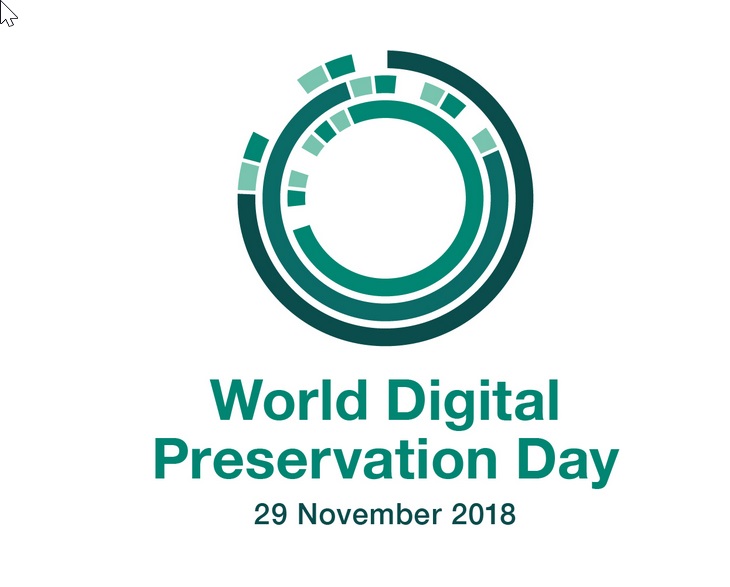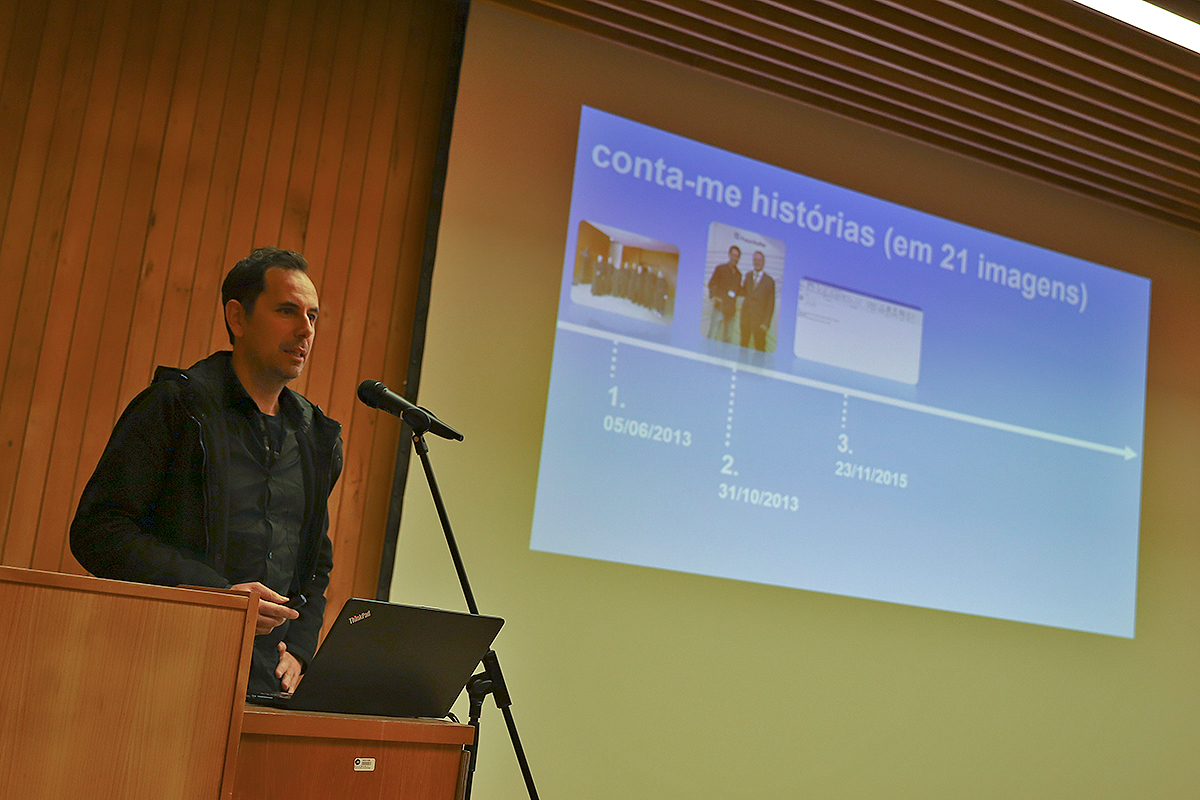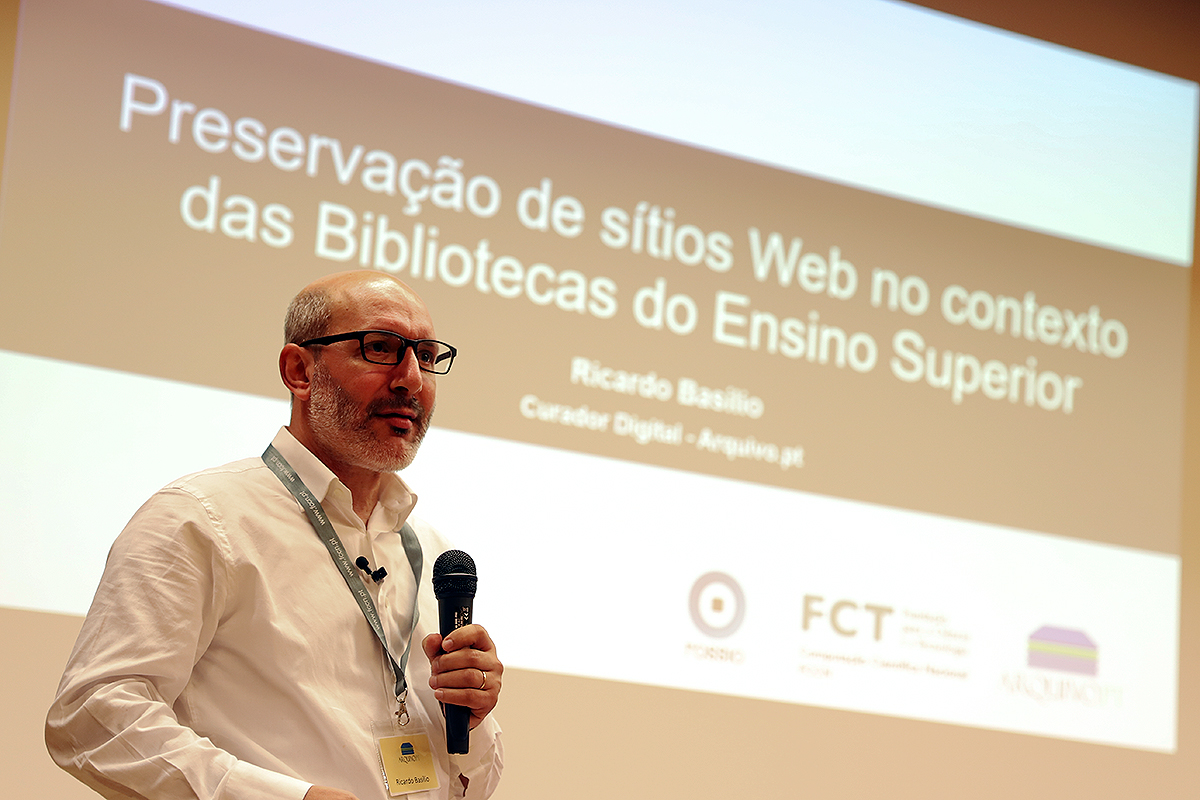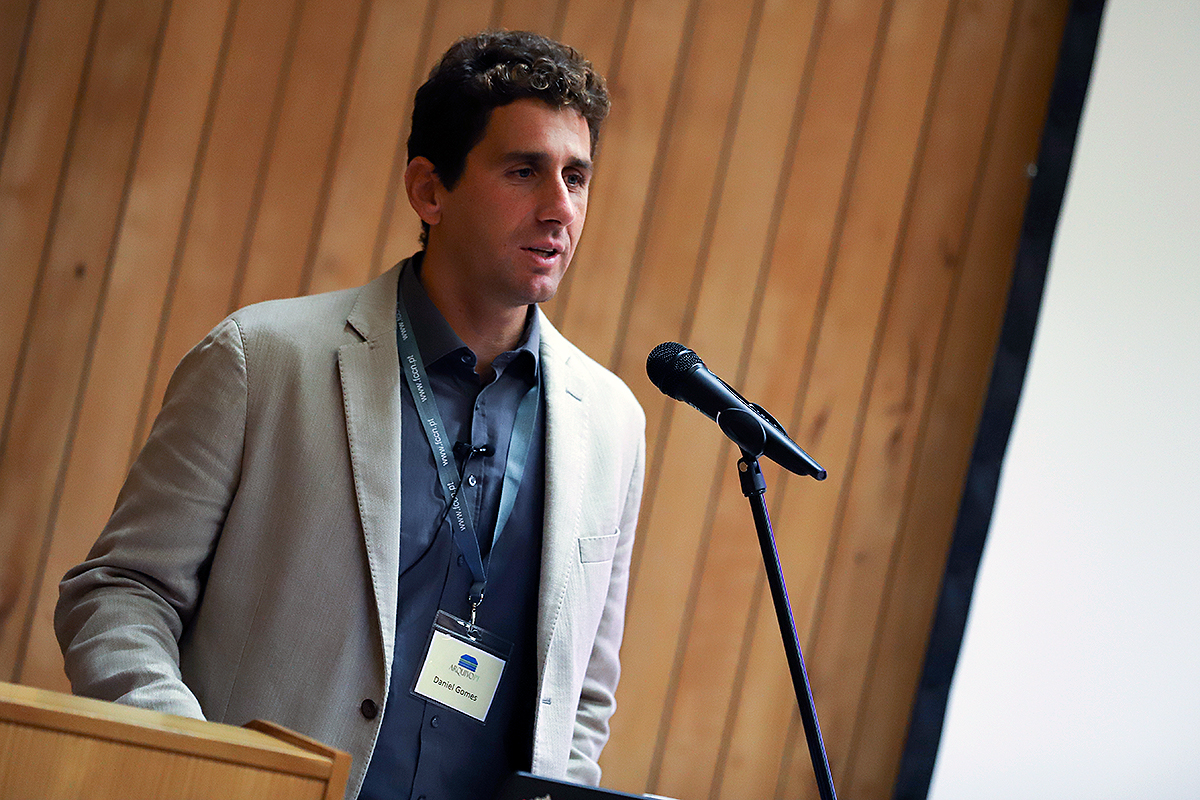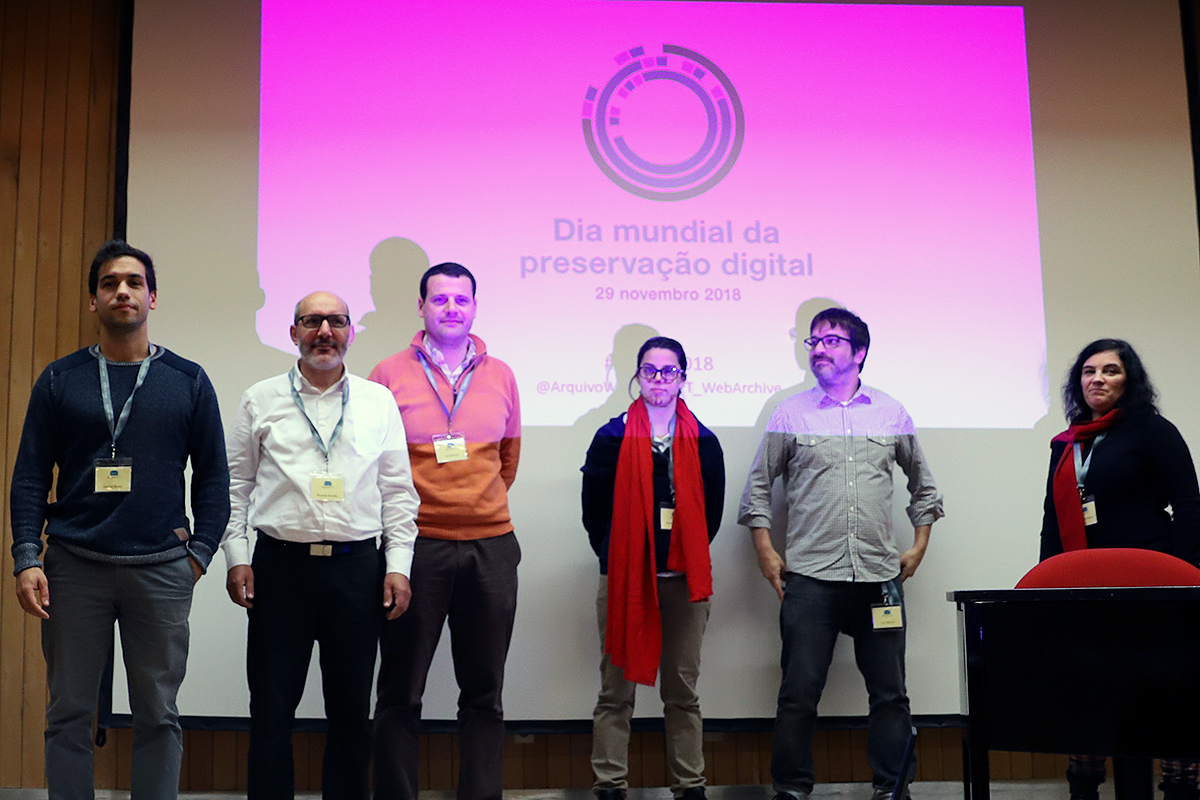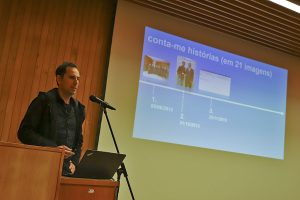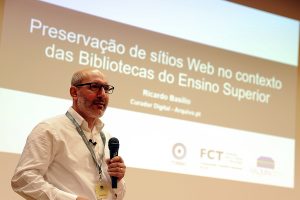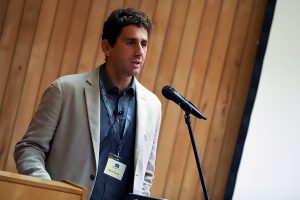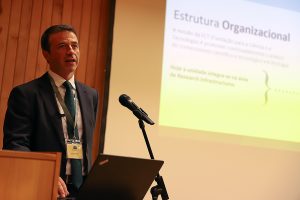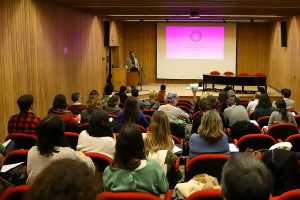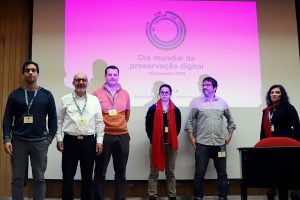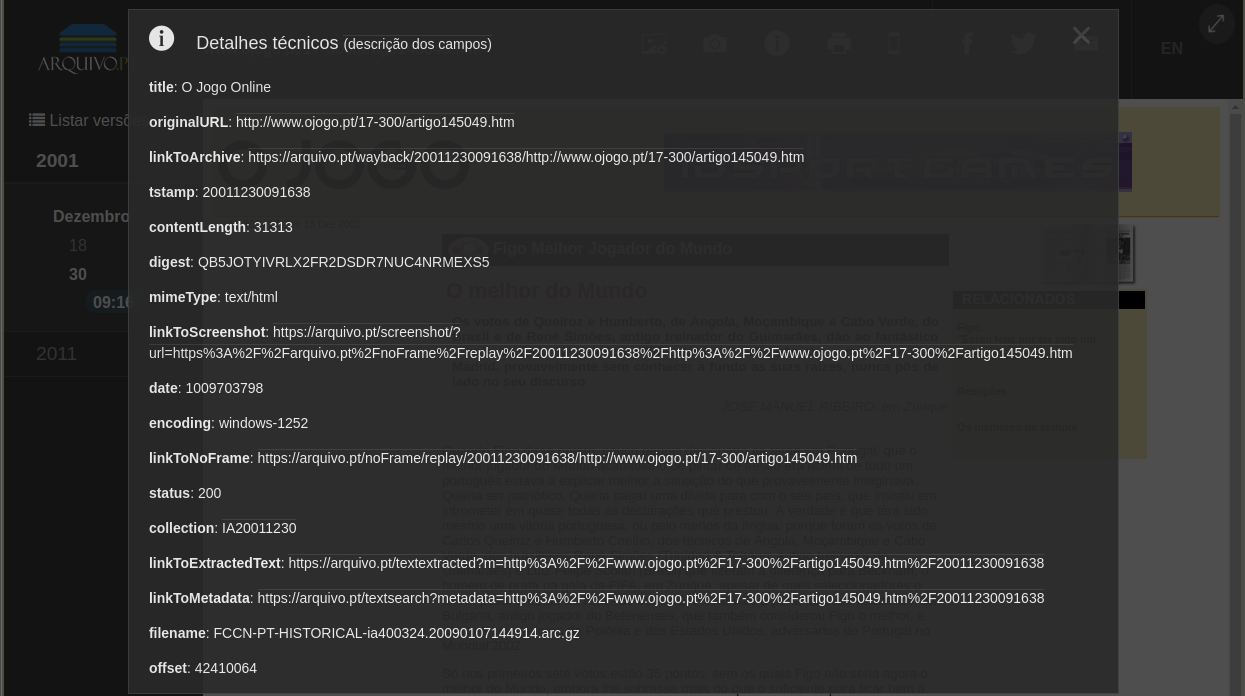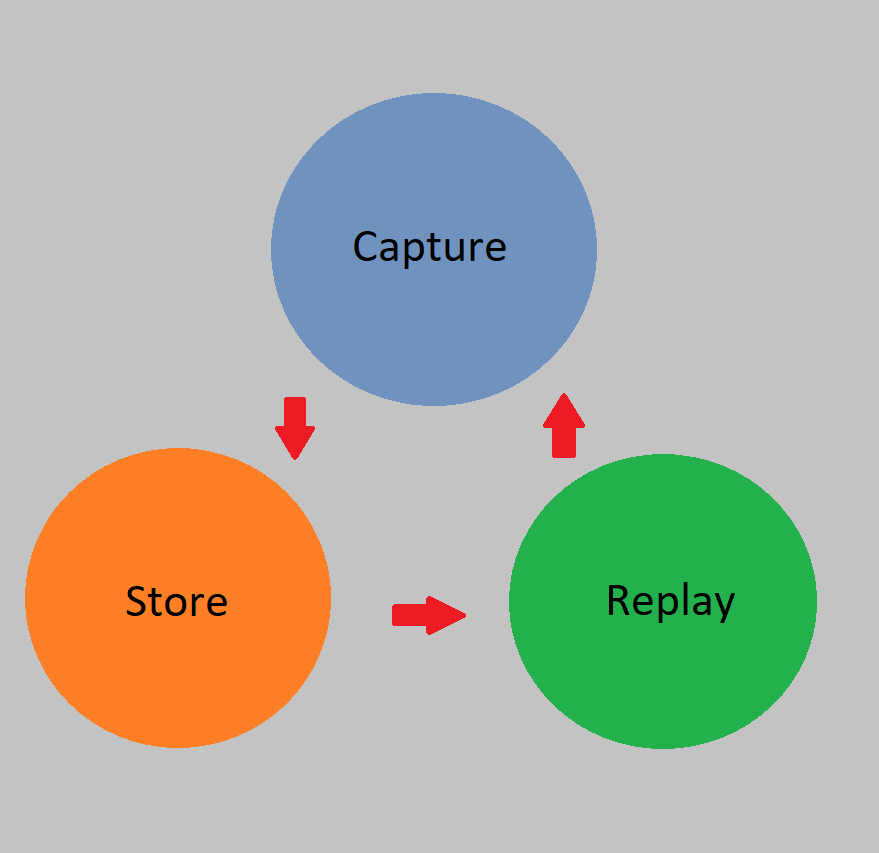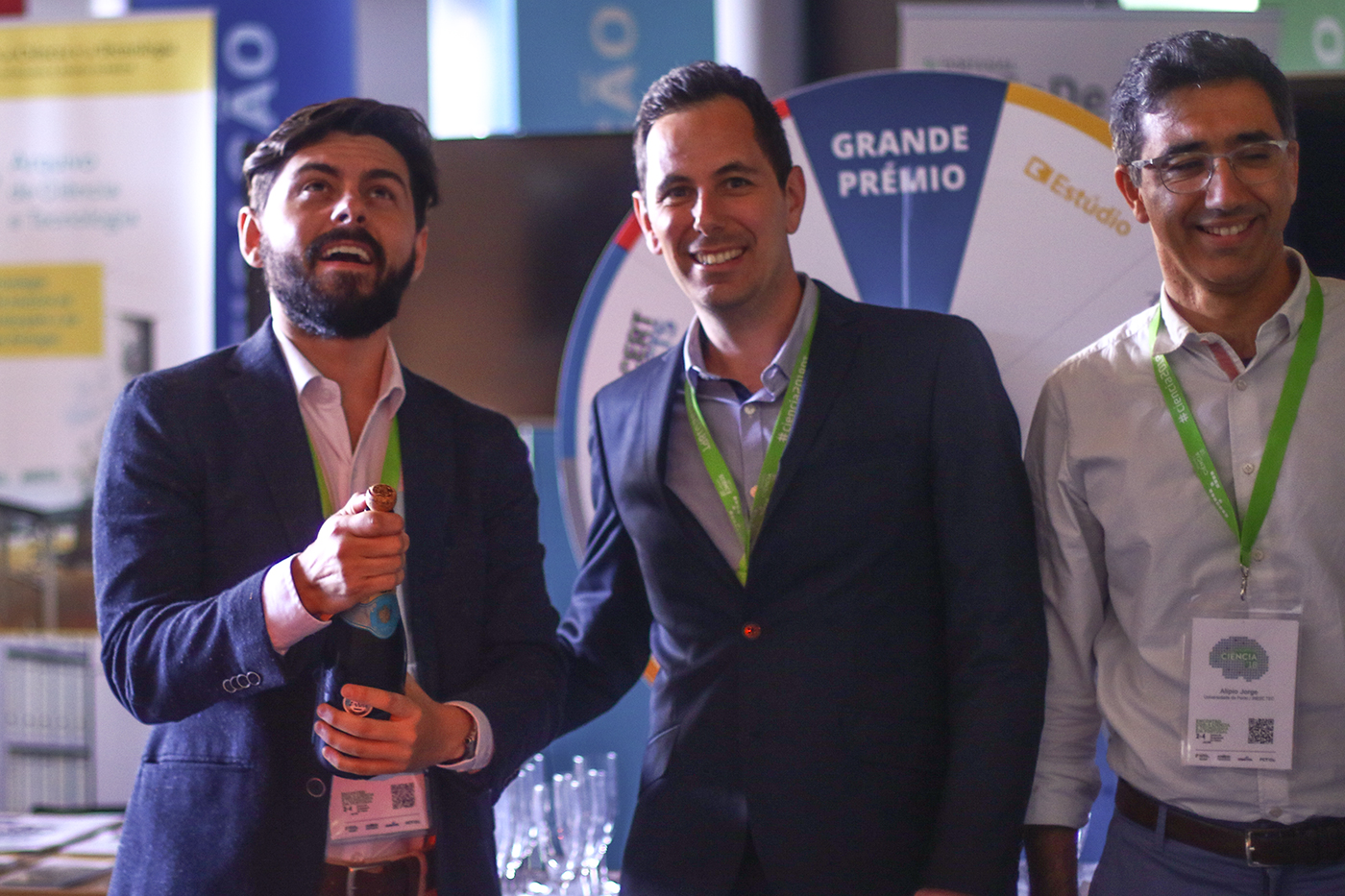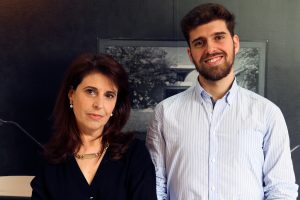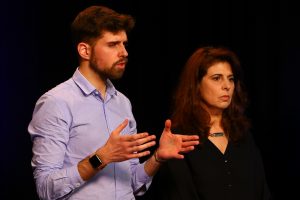Last updated on August 5th, 2024 at 04:56 pm
November 29 is the World Digital Preservation Day 2018 (#WDPD2018).
To celebrate the date, Arquivo.pt will offer a free training on Web Preservation. The objective of the training is to maximize users’ productivity in exploring the service.
The event will begin at 2:30 pm (see full schedule below), in the Pequeno Auditório located at FCT-FCCN (Avenida do Brasil, 101 – Lisbon).
Schedule
- 14:00 – Reception
- 14:30 – Opening session (video)
- 14:45 – Arquivo.pt: news and 2019 Award, by Daniel Gomes (video)
- 15:30 – “Conta-e Histórias”, Arquivo.pt 2018 Winner, by Ricardo Campos (video)
- 16:15 – Break
- 16:30 – Preservation of websites in Higher Education Libraries context, by Ricardo Basílio (video)
- 17h15 – FCCN services available to the Academic Community, by João Gomes
- 17:30 – Optional visit to the data center which hosts the servers of Arquivo.pt
Target Audience
- Information professionals (e.g. librarians, archivists, and documentalists)
- Website managers (e.g. Communication and Design bureaus)
- Web content authors (e.g. bloggers)
- Professors, students, and researchers interested in Digital Preservation
Photo gallery
Dia Mundial da Preservação Digital
